
«Mammu» is best known for its scarves, but as Christmas gift hunt is getting closer every minute, the label is ready to launch a new product line, designed by the New York based emerging fashion talent Ernest Alexander. Besides that, «Mammu» has turned to manufacturing for other labels in an array of craft techniques, as we found out in a chat with Fionn Dobbin and Ivita Ose, two of the founders of «Mammu».
What are the current developments in the work of «Mammu»?
Fionn:
— We are preparing to launch our next collection, which is by Ernest Alexander, and it is again completely different, there are a lot of new products. Normally people relate «Mammu» to scarves, and Alexander changed it, now we have gloves, hats, laptop sleeves and phone cases.
We are also focusing on offering production, design development and management for other labels. There are a lot of small design companies in Europe that want to produce ethically, and it is very difficult, because the majority of such producers are expensive high class boutiques. Working with us, they have a team of people that understand what a social business is and what high quality design is.
At the moment we are working on a small inspiring production catalogue, in which we show all the different production techniques, materials and services that we can offer. There is macramé, knitting, sewing, crocheting, wood works, metal works, all the textiles and other services; we can make high quality photo shoots, we can create identities and campaigns. We work in these fields and we know how to combine them.
Ivita:
— The good thing about producing for others is that you don’t have to worry about selling it.
Was that a conscious decision or it came to you by chance?
Fionn:
— The first time we did something outside of our collection, was for the street knitting event in Wiesbaden. They were celebrating one year anniversary of being a social business city, holding workshops, seminars and lectures on the topic of social business. We were commissioned to do a street knitting campaign for them, produced by mothers in Latvia. We knitted over 2500 pieces, and it was measured in square metres. Many hundreds of square metres!
How many mothers are working for you now?
Ivita:
— Our production is not always constant. At times we can have over 30 mothers working for us, but in smaller projects, like the making of macramé nets, there are only 8. Not everyone is skilled when they start, and we offer training. Some moms prefer working with wool, others with linen, some prefer white silk, because it is harder to work with black silk if you don’t have appropriate lighting at home. Others say they can’t work with white fabrics, because their kids will make them dirty.
Are the crafts self–taught?
Ivita:
— Yes, they are. Many of the mothers already have the skills, which largely depend on the machinery they have at home. There are several mothers who work with leather, not everyone can do it.
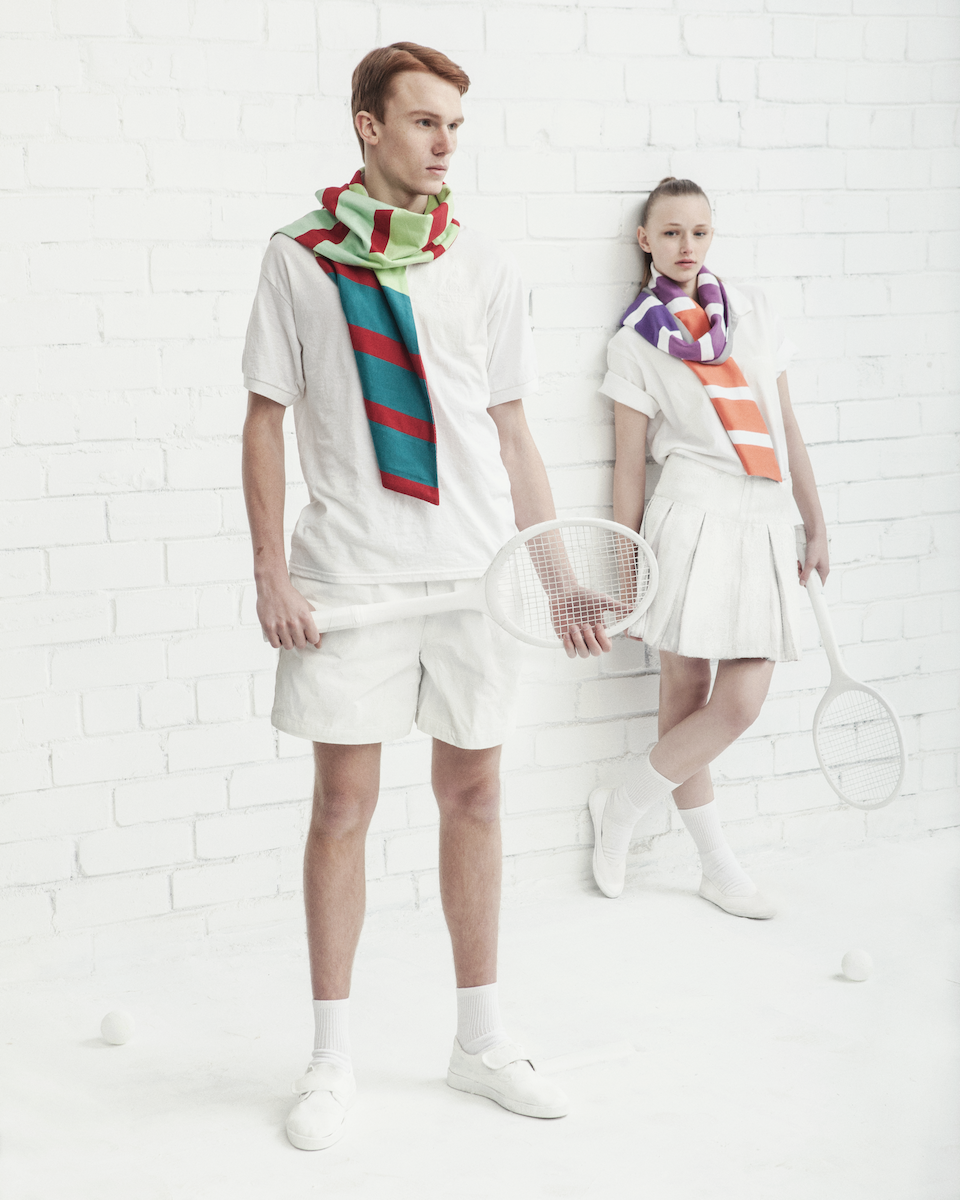
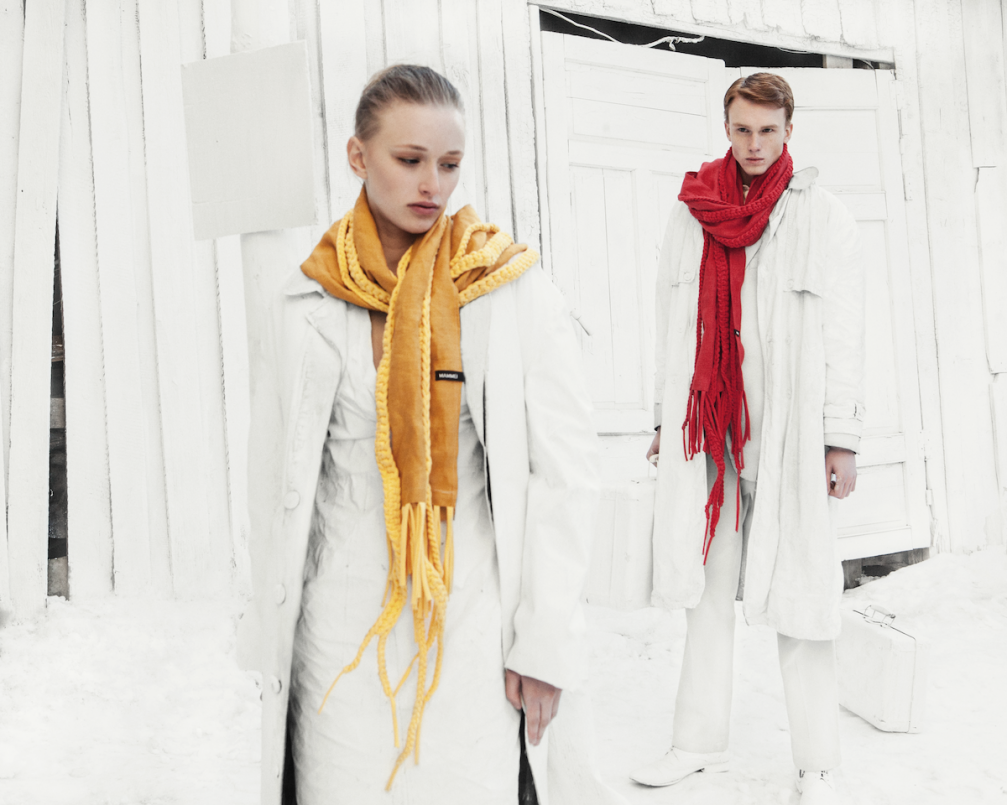
Where do you find the mothers that work for «Mammu»?
Ivita:
— They apply themselves. For bigger projects we also use social networks, like Twitter and Facebook to ask find mothers that are suitable for these specific projects. Everyone ends up sharing and retweeting, and offering help.
Do you only accept mothers?
Fionn:
— No, also grandfathers. I would accept anyone who is ready to sew and knit, and normally fathers are not willing to sit and knit scarves.
Ivita:
— It is really about offering decent work for people who need it. And we just started with mothers because it’s harder for them than for others — to combine caring for children with work due to the shortage of kindergartens and weak state support.
Who manages the production?
Fionn:
— The mothers themselves. They tell us what they would like to do, and you can also see if they like the job, if they are quick with it or doing it unwillingly. Once there was a mother who said she really needed the money and she wanted to make 20 scarves. After a few days she came back with two bags full of half finished scarves and totally angry: «No! I hate this!»
Do they get paid by item?
Fionn:
— Yes, but we only buy those scarves that are of sufficient quality. If there are mistakes, they have to be corrected, otherwise we wouldn’t be able to function at all. Then those would be sad looking products from poor mothers, and people would only buy them out of pity during Christmas time.
What is the form of the business relationship that you have with the mothers?
Fionn:
— We can’t provide permanent job positions and we also need different skills for different projects. Because of that the mothers always work on a project basis, and they all have to register as self–employed persons or small companies. What is nice about that, they get infected by the business spirit, so «Mammu» has an impact on them that is not measurable in income. They realize that they can be a miniature manufacture company. They start working for us and afterwards they start making their own products, like small leather bags or knitwear.

Each «Mammu» collection is made by a different designer. What are the pros and cons of such approach?
Fionn:
— On the one hand, it attracts extra attention — each designer promotes what they have created. On the other hand, we don’t communicate one clear fashion image, which makes it harder to sell the products, because shops often want to see a bigger portfolio in one style. We are a movement with a philosophical background, not a fashion strategy.
If you want to sell it the usual way, it doesn’t work. The Nina Elektrichka edition has nothing to do with the silk scarves, and the silk scarves have nothing in common with our linen scarves. And this is the exciting part, we give the artist or designer freedom of creativity. We aren’t looking for someone who can create something similar to what we already have, we really want them do what they think is beautiful.
How much does your work depend on the seasons in fashion industry? It seems that you make things when you want to make them.
Fionn:
— We release T-shirts in winter and woollen products in summer, but it also doesn’t matter, because there are so many climate zones in the world, and we are not a part of the big fashion machinery.
We actually take part in many non–fashion events, for example, the global Social Business Summit, where in between lectures and workshops there was a fashion show. The audience was quite elite — the queen of Spain, winners of Oscar and Nobel prizes.
In fact, a fashion show was the reason why «Mammu» came into being. Damien Carlier, who was the founder of «Moment», asked us if we’d like to do something for the show in three weeks’ time. We said: «Are you crazy? We don’t have a label, there aren’t any designs!» And he replied: «Yeah, yeah, you’ll manage everything». In just a couple of weeks we came up with a brand name and a corporate identity, made the logo and business cards, created a webpage, made our first collection and photo shoots.
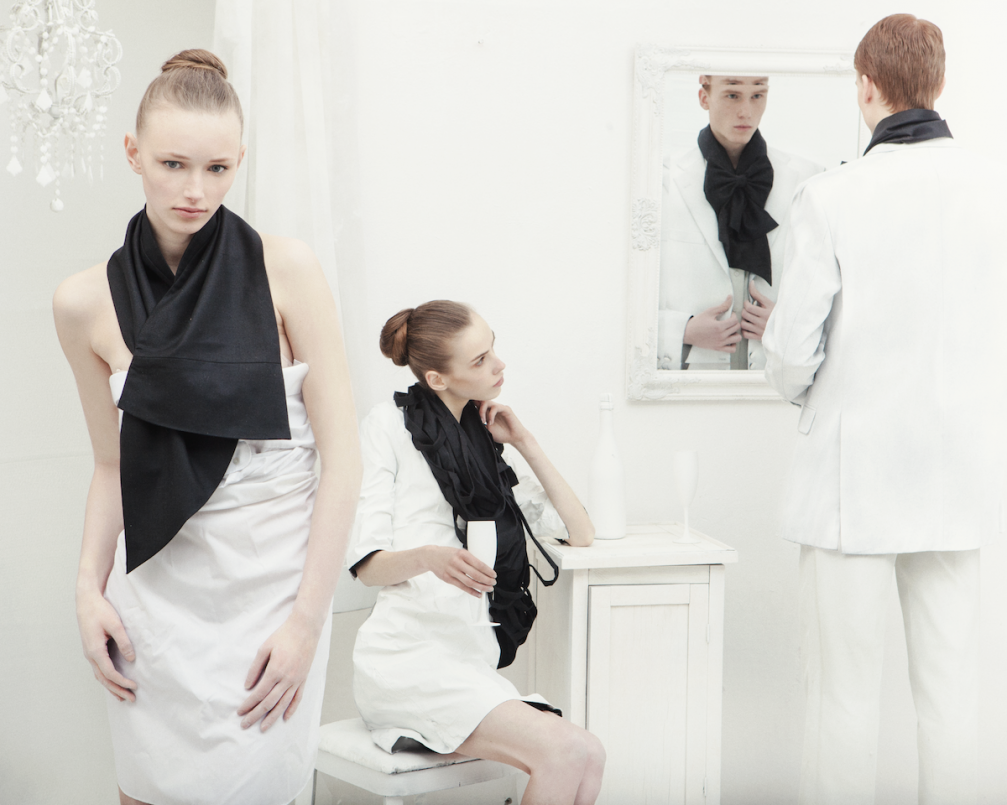
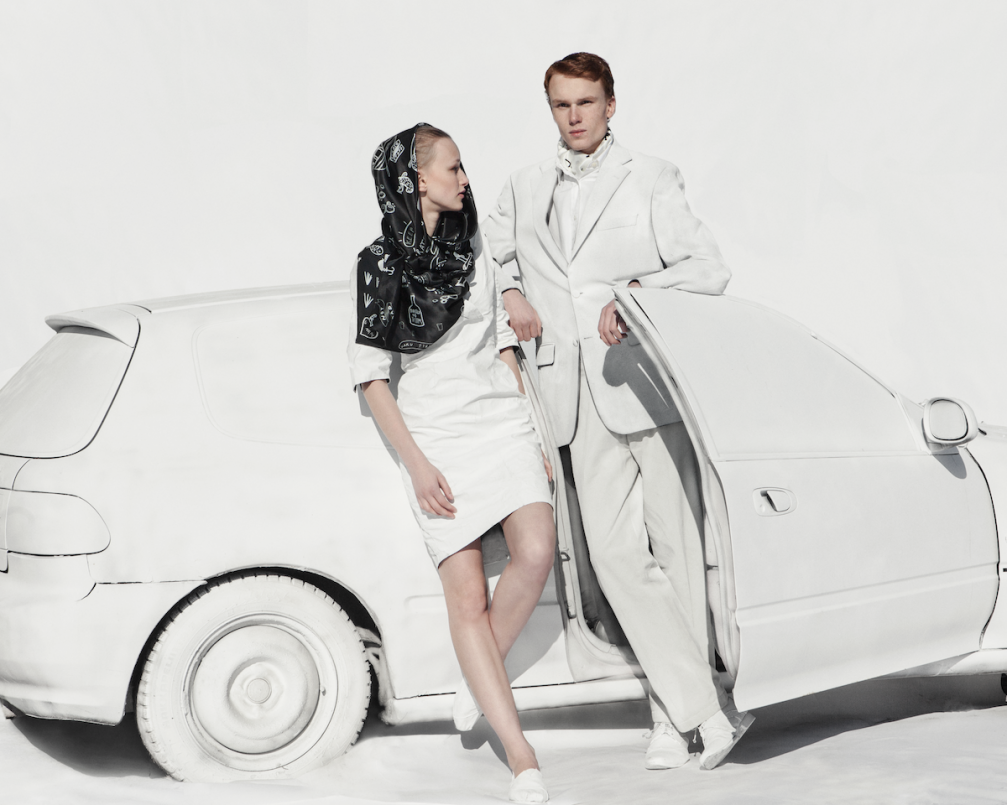
What presentation materials are a must for a fashion company?
Fionn:
— We produce accessories, and a fashion show is perhaps not the best way to show them. What matters is mood shots and product shots. Those go on to the website and printed materials, we send them to magazines. Now we have made a look book as well with more commercial shots — a person wearing the product. It shows the brand’s image, not just the product’s image.
What other marketing tools do you use?
Fionn:
— We are active in social media, we have many collaborations with bloggers and online media, newspapers and magazines. We often give talks about «Mammu», mostly in places with an active audience — editors of magazines, designers, photographers, and we also get attention for being very open.
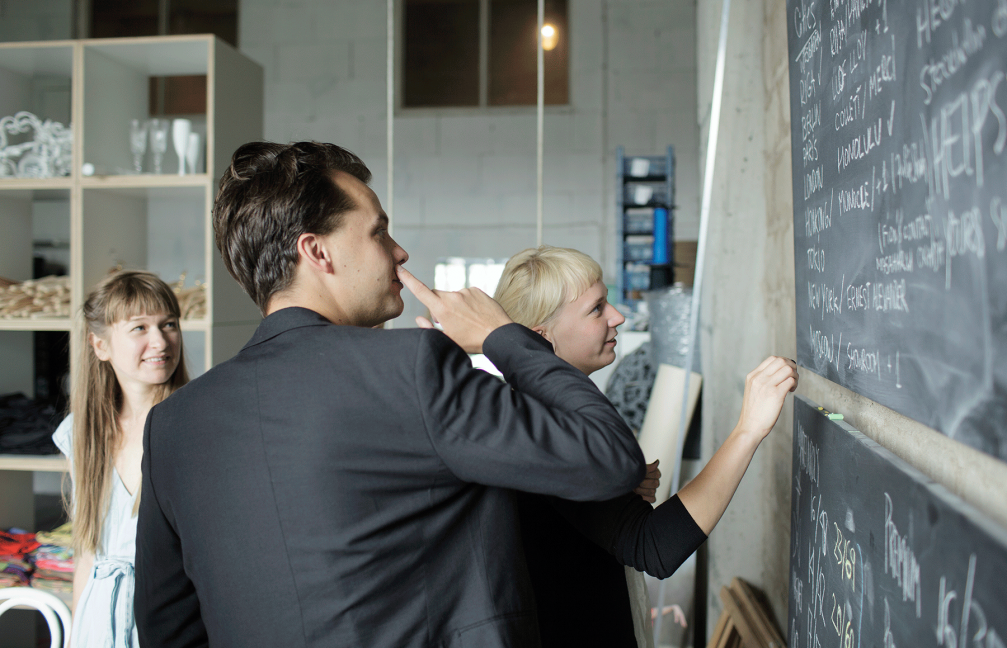
Why did you apply to the «Creative Andrejsala» incubator?
Fionn:
— We wanted a bigger office, and it is a beautiful location. I was walking through here, visiting «QooQoo», and I saw that there are many networking and collaboration possibilities with all the little brands here. The financial support for marketing expenses was also interesting, but it wasn’t the main motivation. However, the people in the building keep changing, and it is a bit hard to keep track on who is here and what they are up to.
As a foreigner, do you find it easy to do business in Latvia?
Fionn:
— It is hard to explain the price of our products to Latvians. For many people it seems ridiculous, because they are skilled enough to make things themselves. I have already seen people making bootleg versions of «Mammu» scarves. Sometimes the mothers make scarves for their friends, so there is a parallel production line. I find it great and very creative, and I can’t imagine this happening in Germany.
What role does it play that «Mammu» is the first real social business in Latvia?
Fionn:
— I think the story of «Mammu» is very poetic and encouraging, and people can easily connect to it. People feel that it is something they could do themselves because you don’t need machinery to start a label, you see what people already have at home, and then you just link it together. So we function a little bit like a Wikipedia of fashion.

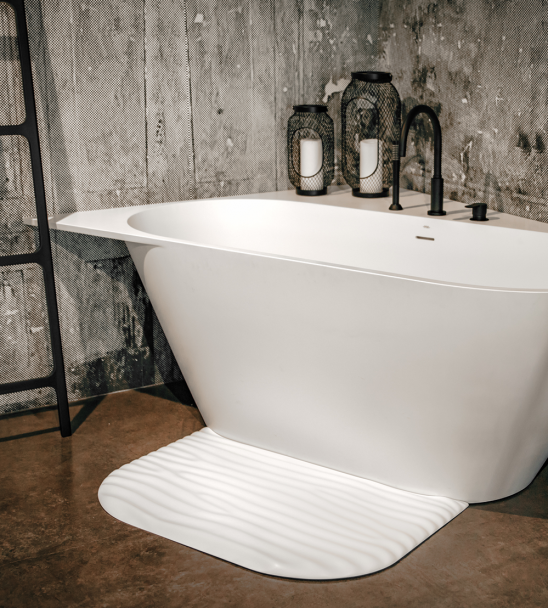
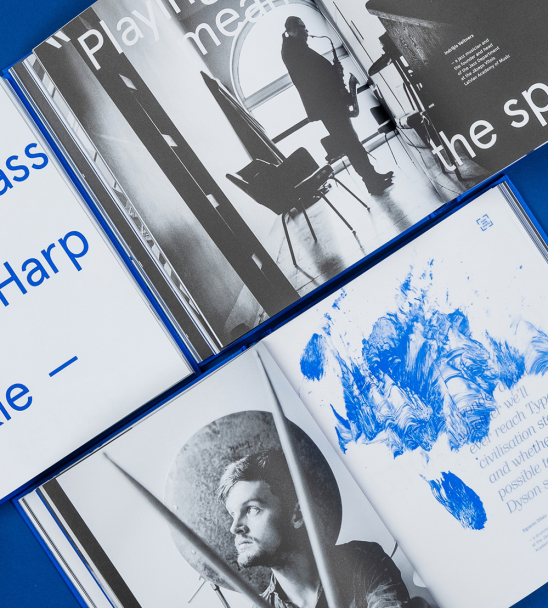

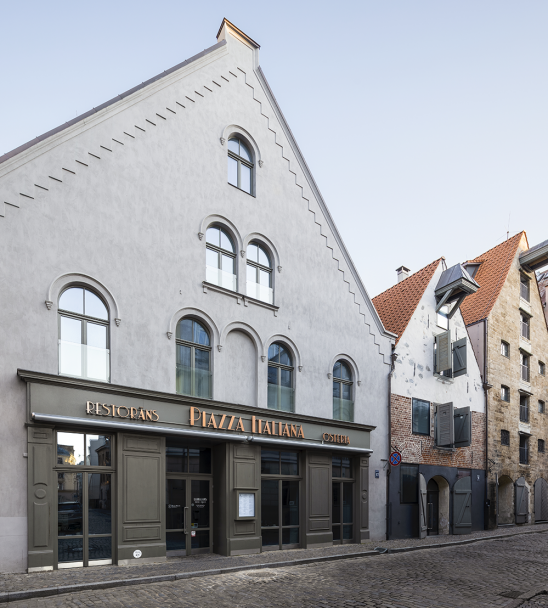
Viedokļi